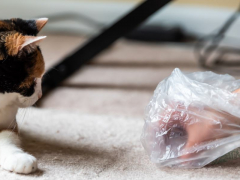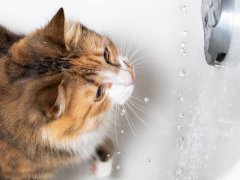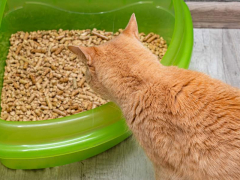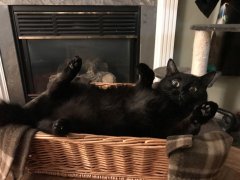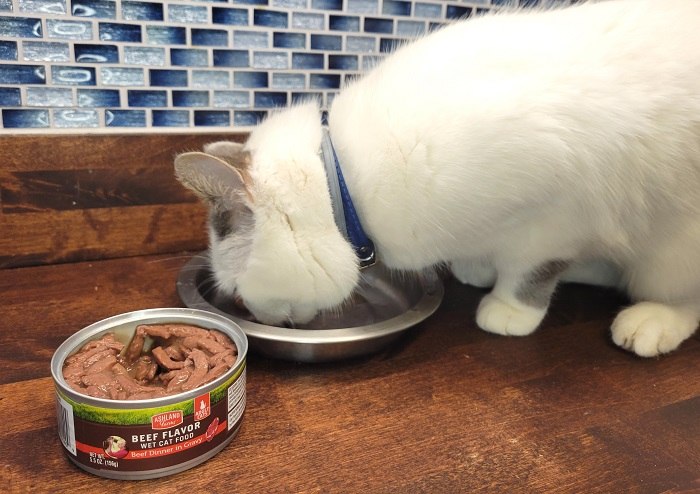
Kate Barrington / Cats.com
Nutrition is vital to feline health, so it can be alarming when your cat won’t eat their wet food. Many cats are also on a wet food diet to improve their water intake, so their hydration is also at risk. Maybe your cat is trying wet food for the first time or just switching brands. Your cat’s eating habits are based on countless factors—from the texture and flavor of the food to their feeding schedule and early associations.
Medical conditions such as dental problems or kidney disease are also common culprits for decreased appetite. As a veterinarian, I see a lot of cats come into the clinic who are not eating well. This always warrants a full health examination where I pay special attention to their teeth. Dental disease is common in cats, but they’re so good at hiding pain that often the only sign is a change to their eating habits.
If your cat won’t eat wet food, read on for why this might be, some tips to help, and when to be concerned.
7 Reasons Why Your Cat Won’t Eat Wet Food
It’s frustrating when your kitty won’t touch the food you thoughtfully picked out just for them. It can also be troubling if they’re not eating well. Understanding your cat’s behavior is the first step to finding a solution. If they won’t touch their wet cat food, here’s a few reasons to consider why.
1. Stress Caused by Environmental Changes
Cats are highly attuned to their environment and are very sensitive to certain senses such as smell. If the aroma, taste, or texture of the food is not to their liking, they may reject it. Some cats just seem to prefer the taste and texture of dry kibble. If your cat is new to wet food, they may find the different textures and moisture levels too far outside their comfort zone. After all, cats are creatures of habit.
2. Cat Food Recipe Changed
If your cat’s food has been the same for a long time, it may seem strange that they suddenly turn their nose up at it. However, pet food brands can change their recipes without warning and your cat will definitely notice! Has the texture changed from pâté to chunks? Has the protein switched from chicken to turkey? Different flavors and ingredients can play a large role in food rejection.
3. Wrong Cat Food Bowl
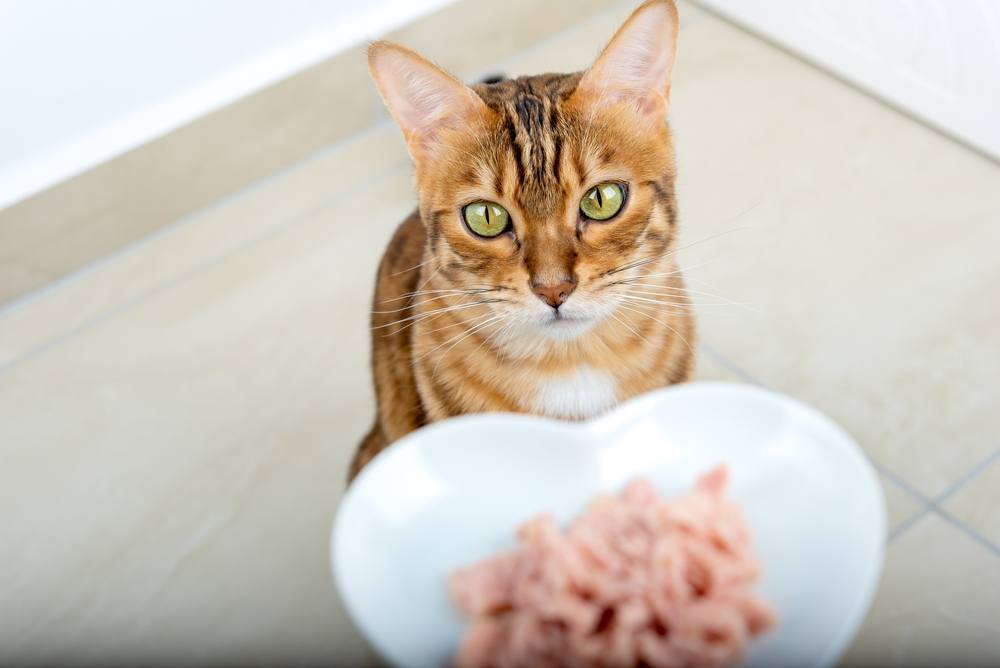
Many cats prefer to eat from wide, shallow dishes rather than deep bowls. Ceramic and glass are easily cleaned and don’t retain bad smells. Svetlana Rey / Shutterstock.com
Your fussy eater may actually be grappling with the dish, rather than the food. Plastic dishes will retain more odor and bacteria than ceramic, glass, or stainless steel. Dishes that have been washed with detergent and not thoroughly rinsed may also be off-putting. Deep bowls or those with straight sides make it hard for your cat to reach their food. This can also lead to uncomfortable whisker fatigue from constantly brushing against the sides of the bowl.
Also Read: The 8 Best Cat Bowls (Purchased and Tested)
4. Cat Food That Has Expired
Cats have approximately 200 million odor sensors in their noses. (They’re 14 times more sensitive than ours.) They are evolutionarily programmed to avoid food that smells like it may give them an upset stomach. They may pick up on cat food that has expired or wasn’t stored correctly and has spoiled. Commercial pet food generally has a long shelf life, but it’s always worth double-checking the expiration dates for safety.
5. Changes to Routine
A lack of interest in food may be as simple as your cat not adjusting well to something different in their routine. Have you changed their feeding schedule or altered where their bowls are situated in the house? These seemingly small details can cause more problems for cats than you might expect. If a routine change seems to be affecting your pet, consider reinstating their usual habits. Be patient.
6. Stressed-Out Cats
Cats are so harshly affected by stress that it can cause ill health. Stressors for cats might include a new pet or family member in the household, loud noises, and physical changes to their environment. Environmental stressors could include home renovations or even territorial disputes with neighboring felines. Cats can react to stress in many ways, including hiding away more, urinating in inappropriate places, and changes to appetite.
7. Loss of Appetite
Is your cat refusing to eat wet food or just not eating well at all? If your cat goes outside, their loss of appetite could be due to them gaining their calories elsewhere, such as increased hunting or being fed by a neighbor. But poor appetite may also be due to a health concern. Various medical reasons cause cats to go off their food, including gastrointestinal problems, dental disease, kidney failure, and liver disease. Even upper respiratory infections can reduce appetite, as they prevent cats from being able to smell their food.
Make Your Picky Eater Happy
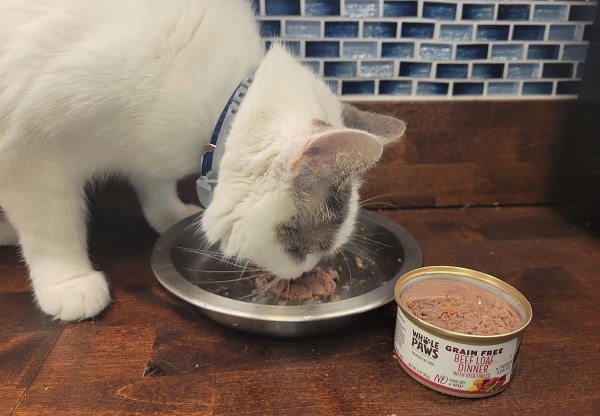
All cats deserve a comfortable, nutritious eating regimen. Kate Barrington / Cats.com
Cats know the difference between a good dining experience and a poor one—and they certainly deserve the best. Here are some tricks to help your cat eat their wet food:
Go Back to Basics
If you have a finicky eater, try to reset a little. If they don’t like their new food, go back to their usual fare for a while just to settle them. On the other hand, if you haven’t changed their food for months and they’re bored of it, try mixing it up a bit. Switch flavors or choose a different consistency. Change your cat’s diet gradually over a couple of weeks to avoid an upset tummy. Serve their food in clean, suitable bowls and refrigerate leftovers in an airtight container.
Make it Appealing
If your cat isn’t interested in their wet food, make it appeal to their senses more. Heating it up slightly or adding some warm water can make it smell more appetizing. Test the temperature before serving it to them. You can also mix in some treats or food toppers to really pique their interest. If your cat is transitioning from dry food, try not to overwhelm them. Add just a small amount of wet food to their dry food and then gradually increase the proportion of wet food.
Reduce Cat Stress
Have there been any big changes to your cat’s routine or environment? This can cause them big stress and lessen their appetite. If your cat seems unsettled about anything, consider making their environment more feline-friendly. Pheromone diffusers, cozy hiding places, a predictable routine, and plenty of bonding time can all make a difference to those more anxious kitties.
Schedule a Check-Up
A change in your cat’s appetite can signal many things. It could be that your cat merely dislikes the taste of their wet food, but there could be an underlying health concern. Cats who stop eating suddenly can even develop hepatic lipidosis (fatty liver disease), which can be life-threatening. If your cat isn’t eating well, and especially if they have any other symptoms, book a visit to your veterinarian for a health exam.
